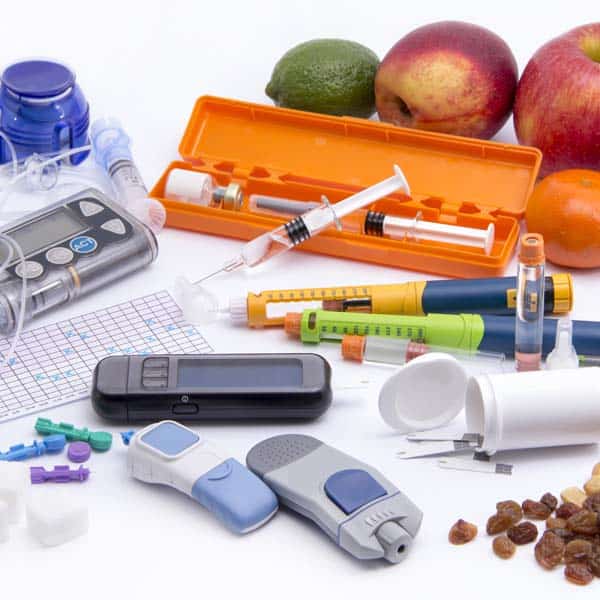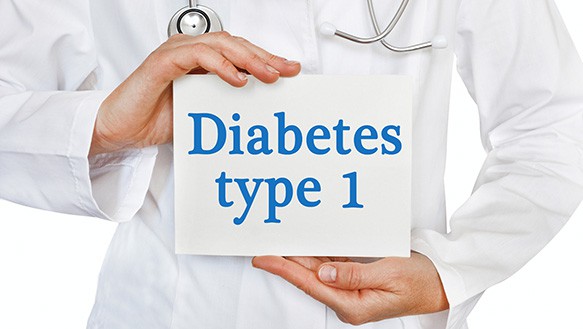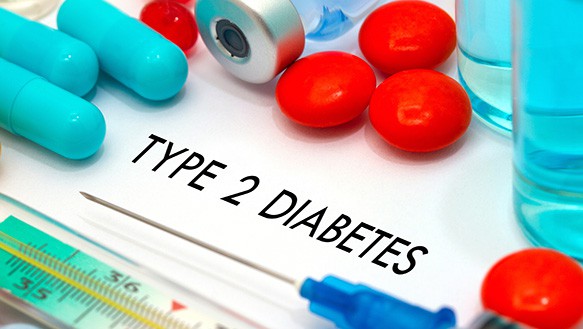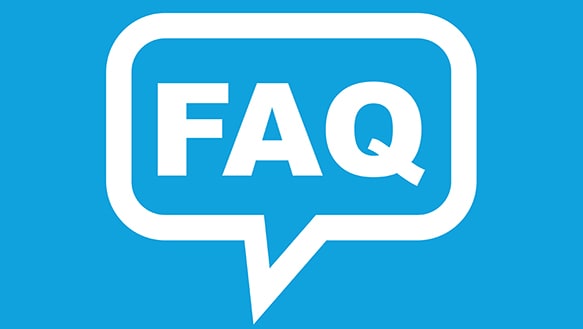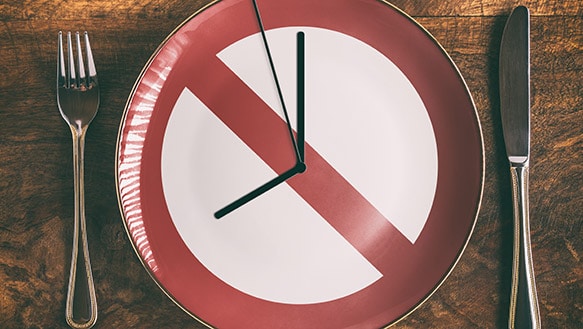
Fasting when you have diabetes either Type 1 or Type 2 can be rather risky. However, it is not impossible if you are working in collaboration with your doctor and diabetes care team.
The challenge behind fasting with diabetes is the skipping of meals. As someone with diabetes, you know the importance of managing your blood glucose levels and how much this relies on making sure you eat regular meals at the right time. So, what does skipping meals do to your blood glucose levels?
We’ll get into this further in this article, but first let’s discuss the different types of fasting.
Contents
Types of Fasting
Below you will find a brief overview of the different types of fasting and both the pros and cons to each type:
Intermittent fasting
Intermittent fasting is the abstinence of food regularly such as once a week. This type of fasting can be done as part of a spiritual fast or as a conscience health decision for part of your typical diet. Most diets help you to achieve your goal of weight loss through the same type of equation. You consume less calories and food each day than you burn during periods of activity. The theory behind an intermittent fast for weight loss is that tit will help you to decrease your body’s overall appetite by slowing down your metabolism. An intermittent fast can be useful for some as they help you to establish a routine that fits in with your daily activities. Common types of intermittent fasting include fasting once daily for anywhere from 16-24 hours.
How to Fast Intermittently
There are three popular/ common methods used to fast intermittently. They include:
Eat-Stop-And-Eat: This method requires fasting for 24 hours one to two times a week. This can be done by not eating from dinner time one day until dinner time the next day.
5:2 Diet: Two non-consecutive days you only eat 500 to 600 calories and eat normally the other days of the week.
16/8 Method: This can also be referred to as Leangains Protocol. This method requires you to skip breakfast and restrict eating to only 8-hour periods. For example, you would eat lunch at 1pm and not eat again until 8 pm. In total this means you will fast for 16 hours.
Pros:
Weight Loss: Intermittent fasting can help to lower your metabolism by forcing your body into starvation mode. Starvation mode will help your body cause the muscle to be broken down to be used for energy instead of fat. An additional benefit of intermittent fasting is the reduction of your appetite causing you to feel fuller longer.
Insulin Resistance: Fasting intermittently can reduce your insulin resistance by lowering your blood glucose levels by upwards of 6% as well as your morning fasting levels by 30%.
Brain Health: Intermittent fasting increases a hormone in your brain known as BDNF which can aid in the growth of new cells. It is not fully researched but believed that intermittent fasting can help reduce your risk of developing Alzheimer’s.
Anti-Aging Properties: Intermittent fasting in rats has shown to increase their lifespan. Studies have revealed that these rats lived upwards of 80% longer than those who did not fast.
Cons:
Amenorrhoeic Periods in Women: Some studies have showed that women who participated in intermittent fasting had a stop in their menstrual cycle when doing so. However, once the intermittent fasting was stopped, their periods went back to normal. For women who are trying to conceive, it might not be the best time to this type of fasting due to the potential to decrease or stop your menstrual cycle.
Increased Hunger: At first your hunger levels will increase because your body is not used to NOT eating for lengthy periods of time. You may also feel fatigued until your body has the chance to adapt to the new diet and eating schedule.
I suggest reading the following articles:
- Exercises That Are Good For Weight Loss If You Have Diabetes
- Slow Healing & Diabetes: Why Do Wounds Heal Slowly If You Have Diabetes?
- Beta Cells and Diabetes
- Diabetes Scholarships: Everything You Need To Know
- How Can Weight Loss Be An Important Sign Of Diabetes?
- Vaginal Itching & Diabetes: The Causes Behind Vaginal Itching
Religious Fasting
Religious fasting is fasting from food and drink to focus more on your spiritual growth. Denying yourself something to enhance one’s spirit and become deeper into prayer. This type of fasting is not to be considered as a diet method. When participating in religious fasting, you are not doing so to lose weight but rather to become closer to your God/ Deity.
Pros:
Closer Connection to God: Those participating in religious fasting are doing so to develop a deeper connection to God.
Delayed Gratification: Abstaining from food and drink for an extended period will also teach you how to delay gratification on something you truly want, (i.e. Food)
Cons:
Difficulty Managing Blood Glucose Levels: Fasting in any periods can make it more difficult to manage your blood glucose levels if you are not prepared. Its important to speak with your medical team ahead of time to determine the treatment and correction methods you should use during your fasting period. When you abstain from food or drink and experience a low blood glucose level, it is still imperative to your health that you treat your low accordingly.
Fasting for Medical Reasons
Some medical testing can require you to fast prior to having it done. This can include:
- Annual blood work
- An impending surgery
- Cholesterol Screening
Fasting for medicine is important. When you eat before having a blood test, this may end up interfering with the overall results because of the time your body takes to digest food. Cholesterol tests check the level of fat that is in your blood. When you eat, fat adds up in your bloodstream which could skew the results of the test, causing your cholesterol to be higher than it really is. Fasting before having certain tests done can help to give your doctor a better, clearer picture of what is going on in your blood.
Fasting before surgery especially when anesthesia is involved helps to ensure the stomach is clear of contents. This can prevent you from vomiting and inhaling the contents in your stomach during surgery which co9uld be very dangerous and possibly fatal.
Pros
- Provides a Clear Picture for Your Doctor
- Ensures safety during surgery
- Reduces Inflammation in the Body
Cons
- Difficulty Managing Blood Glucose Levels
- Increased Electrolyte Imbalance
Juice & Cleansing Fast
A juice fast is a way to cleanse or detox your body of toxins by providing it with nourishment. This includes consuming juice full of fruits and vegetables to help hydrate your cells with the proper antioxidants, enzymes vitamins and minerals that you typically don’t get from cooked food.
What is Juice Cleansing/ Fasting?
Someone doing a juice fast only has fluids with fresh fruit and vegetables up to 3 times each day instead of a solid meal. The amount of juice that is consumed is roughly 1-2 liters a day. In between your 3 times of juices daily you can ‘drink’ vegetable soup, herbal tea and a good deal of water.
Pros
Weight Loss: When you are fasting and cleansing with juice you will lose weight, but its important to note that the majority of this will be mostly water weight.
More Energized: If you participate in a shorter juice fast of four or less days you should feel great afterwards. This will allow you to have a new, fresh set of eyes when it comes to your regular daily diet.
Avoidance of Processed Foods: When you spend days only consuming fruits and vegetables you will be avoiding processed foods that have added fat and sugar. This might allow you to make better, more healthier food choices when it comes to your daily diet.
Cons
Little to NO Protein: Some juices may contain nut milk such as Almond Milk in small amounts to provide you with added fat and protein. But your body may start to feel differently if you go more than a few days without a sufficient source of protein. Fat is also necessary to help your body to process fat soluble vitamins like E, D, A and K.
- Blood Sugar Spikes
- Headaches
- Nausea
- Dizziness
- Irritability
- Fatigue
- Constipation
All the above symptoms will begin to occur because your body will release its reserve of glycogen (storage of carbohydrates. Remember when you have type 1 or type 2 diabetes, you will want to speak with your doctor prior to starting because you could quickly go into a ketosis state and if not properly monitored, a healthy ketosis state could quickly cause your body to drift into diabetic ketoacidosis which can be fatal if not treated in a timely manner.
The maximum length of any juice or cleansing diet is only three to four days to achieve the most health benefits.
Short Term Fasting
Short term fasting is like intermittent fasting as it’s not done for long periods of time but rather much shorter periods. Unlike intermittent fasting, you can use short term fasting to fast for periods of 8-16 hours at a time. Some people will drink a cup of tea in the morning without cream or sugar and not eat or consume anything again other than water until dinner or breakfast the next day.
Some people will even only consume nothing except water for up to 72 hours. This should be discussed with your doctor prior to starting as this could potentially be dangerous for those with type 1 or type 2 diabetes.
Pros:
Promotes Autophagy
Autophagy is when the old parts of your body’s cells are broken down and then recycled. Studies have shown that autophagy can help to protect against many diseases such as Alzheimer’s, Cancer and Heart Disease.
Lower Blood Pressure
Medically supervised short fasts can help people to reduce their blood pressure.
Cons
Lose Weight Too Quick: Because this type of fasting can restrict your calories significantly you may lose a lot of weight too quick.
Increased Risk of Dehydration
Your daily water intake doesn’t just come from water, but 20-30% of it comes from the foods you consume. You may put yourself at a higher risk of dehydration during a short term fast. It’s important to look for signs of dehydration such as:
- Dizziness
- Headaches
- Constipation
- Low productivity or motivation
- Nausea
Long Term Fasting
Long term fasting is highly not recommended for those with type 1 or type 2 diabetes as it could be very dangerous. During the first 24-hour period of a fast your body will go through all the reserves of glycogen in your liver. After this has been used up, your body will then try to run on what it has stored elsewhere such as fat and protein.
A long-term fast is a way of keeping your body in ketosis. For those with type 1 and type 2 diabetes, it’s important to understand that nutritional ketosis and diabetic ketoacidosis are two different things entirely. But if you are not under the care and instructions of your diabetic care team, you could quickly take your body from nutritional ketosis to diabetic ketoacidosis. When you keep your body in a state of nutritional ketosis, you will still want to consume protein so that your body will still get some source of energy and only rely on its own fat storages instead of eating away at muscle. Ketosis makes it easier to lose weight as it can help to teach your body how to suppress your hunger for longer periods of time and remove fat storages during the process.
Fasting with Type 1 Diabetes
When you wake up with an in-target number this is always a great start for when you must fast with Type 1 diabetes. But remember no one is perfect and diabetes doesn’t always play fair, so an in-target number may not happen. Here’s what you can do to manage your blood glucose levels when you must fast.
Waking Up Higher: If you wake up a little high you can correct still with insulin, however since you will be fasting you may want to do a ‘reduced correction’ You will want to discuss with your doctor ahead of time how you should handle a reduced correction and periods of hyperglycemia (high blood glucose).
Waking Up Lower: It’s important to note that if you wake up in hypoglycemia (low blood glucose) you must eat or drink something to bring it up. That is your number one priority. You will want to plan another day to try fasting if you wake up with a low blood glucose.
Exercise While Fasting
Exercising when you are fasting with type 1 diabetes will allow your body to burn your body fat for fuel instead of the glucose in the bloodstream. You may be surprised to find out sometimes often, blood glucose levels will rise when your workout due to the adrenaline in your body as well as the production of glucose in the body from the glycogen in your muscles when they are being broken down and worked.
Fasting with Type 2 Diabetes
You have a little bit more wiggle room when it comes to fasting with type 2 diabetes. This is because your body doesn’t always solely rely on insulin being infused or injected subcutaneously as those with type 1 diabetes. In fact, fasting has great metabolic benefits to those with type 2 diabetes when done properly.
By fasting and restricting caloric intake throughout the day, it has been shown to delay the onset of many diseases associated with age such as heart disease, hypertension, and even cancer. What are the metabolic benefits to fasting with type 2 diabetes?
- Reduced inflammation
- Reduced risk of cancer
- Reduced triglycerides
- Reduced blood pressure levels
- Increase in good cholesterol (HDL)
- Reduction in bad cholesterol (LDL)
- Increase in fat loss and fat burning
Another benefit to those with type 2 diabetes is an increase and improvement in insulin sensitivity. Intermittent fasting for example is a great way to normalize or balance blood glucose levels. The benefits it offers to those with type 2 diabetes include:
- Reduction in fasting blood glucose levels
- Reduction in the post-prandial (Two hour after meal) blood glucose level
- Reduction in glucose variability
- Increase in insulin sensitivity
Further reading:
- Equestrians And Diabetes
- Why You Should Be Concerned With Pain And Numbness When You Have Diabetes
- Making Healthy Choices in a Toxic Food Environment
- The Complexity of Diabetes – 5 Endocrine Disorders Explained
- Top 10 Diabetes Carrying Cases
- 13 Amazing Management Tips for Adults Living with Type 2 Diabetes
FAQs
What are the main concerns regarding fasting in diabetes?
The biggest concern with fasting with diabetes is the decrease in food consumption and its affect on the blood glucose levels. However, if you are working with your diabetic care team and have developed a proper management plan, fasting can be done safely.
How can fasting effect blood glucose levels?
Fasting has shown to have great benefits on blood glucose levels. Better morning fasting numbers and post prandial numbers have been shown throughout many studies when it comes to fasting and diabetes.
What is research or are the experts saying?
- https://www.diabetes.co.uk/news/2017/sep/new-study-reveals-effects-of-short-term-fasting-on-people-with-type-2-diabetes-90602056.html
- https://www.sciencealert.com/this-fasting-diet-could-reverse-diabetes-and-repair-the-pancreas-says-new-research
- https://www.ncbi.nlm.nih.gov/pmc/articles/PMC5394735/
Can fasting cure or reverse diabetes?
There is no cure for type 1 or type 2 diabetes. Fasting can help to reduce the amount of insulin your body may need and even provide greater insulin sensitivity for those with type 2 diabetes. This may allow with a well-balanced diet and exercise program for you to reduce the amount of medication needed to manage type 2 diabetes but should only be done under the supervision of your doctor.
Do I need to follow a certain diet to fast or can I just fast have based on my current diet?
It’s vital to ensuring you are fasting safely to first discuss with your doctor your management and diet plan when it comes to fasting. However, you can fast with a current diet if it is well balanced and provides all vital vitamins and nutrients your body needs.
I have read that intermittent fasting can help with diabetes management. Is it true?
Fasting can help with diabetes management by helping to provide better blood glucose control and more optimum in range levels. Discuss with your doctor prior what is recommended for you in terms of your diabetes management before beginning.
How is the fasting blood sugar used to diagnose diabetes?
A fasting blood sugar helps to provide the best look at what is going on in your body when it comes to diabetes. This is because when you are without food for longer periods of time it allows your doctor to get a better look at what your blood sugar levels are like without food to interact with them.
How to do intermittent fasting for diabetes?
Intermittent fasting can be done easily and safely when you have diabetes. Intermittent fasting is for shorter periods of time such as 16-24 hours. While you do usually want to have a few meals to help with the management and provide carbohydrates to be broken down and converted into glucose for energy, you can still fast safely with diabetes. This would require frequent blood glucose testing’s and monitoring for if periods of hyper or hypoglycemia occur.
What are the risks of diabetic ketoacidosis if I am fasting?
As discussed above, there is a nutritional ketosis state you can put the body in when you are fasting, but it is completely different from diabetic ketoacidosis. You should still note that there is a higher risk of developing DKA when you are fasting due to the lack of food in the body and periods where insulin is not needed. Therefore, it is important to discuss ahead of time with your doctor on what you should do to avoid DKA when fasting.
I only need to fast for religious reasons once or twice a year. Is that ok or will it wreak havoc on my sugar levels?
Only fasting periodically such as a few times a year should not have a drastic affect on your blood sugar levels.
Conclusion
Intermittent or short-term fasting can be done successfully when you have both type 1 or type 2 diabetes. In fact, it may also help you to better manage your blood glucose levels. It is a great way to reduce your risk of high blood pressure, and high cholesterol. When done safely you can even reduce your risk for many diseases such as heart disease and cancer. You will first want to talk to your diabetic care team or doctor before fasting, this is VERY important. They can help you to develop a proper plan for when it comes to managing your blood glucose levels when fasting.
TheDiabetesCouncil Article | Reviewed by Dr. Jack Isler MD on June 01, 2020
References:
- https://www.crosswalk.com/faith/women/the-different-types-of-fasts-11626299.html
- https://www.everydayhealth.com/type-2-diabetes/living-with/fasting-safely-with-diabetes/
- https://idmprogram.com/fasting-cures-diabetes-t2d-4/
- https://www.diabetes.co.uk/diet/5-2-intermittent-fast-diet.html
- https://www.diabetes.co.uk/news/2017/sep/new-study-reveals-effects-of-short-term-fasting-on-people-with-type-2-diabetes-90602056.html
- http://www.diabetesforecast.org/2014/10-oct/safe-fasting-with-diabetes.html
- http://theconversation.com/intermittent-fasting-could-help-tackle-diabetes-heres-the-science-82281
- https://www.independent.co.uk/life-style/health-and-families/intermittent-fasting-diabetes-science-research-diet-health-a7909811.html
- http://www.bbc.com/news/health-39070183
- https://www.dietdoctor.com/fasting-reverses-diabetes
- https://health.usnews.com/health-care/patient-advice/articles/2017-06-22/9-guidelines-for-fasting-when-you-have-diabetes




